You often hear that Chinese food you order in “insert country here” is not the same as the food you get in China.
It’s not any particular dish, spice, or occasional parasite that makes Chinese cuisine unbootleg-able (unlike phones, movies, or fashion). It’s the ingredients you can’t put in a recipe. The faces, the communal eating, the celebration of meals.
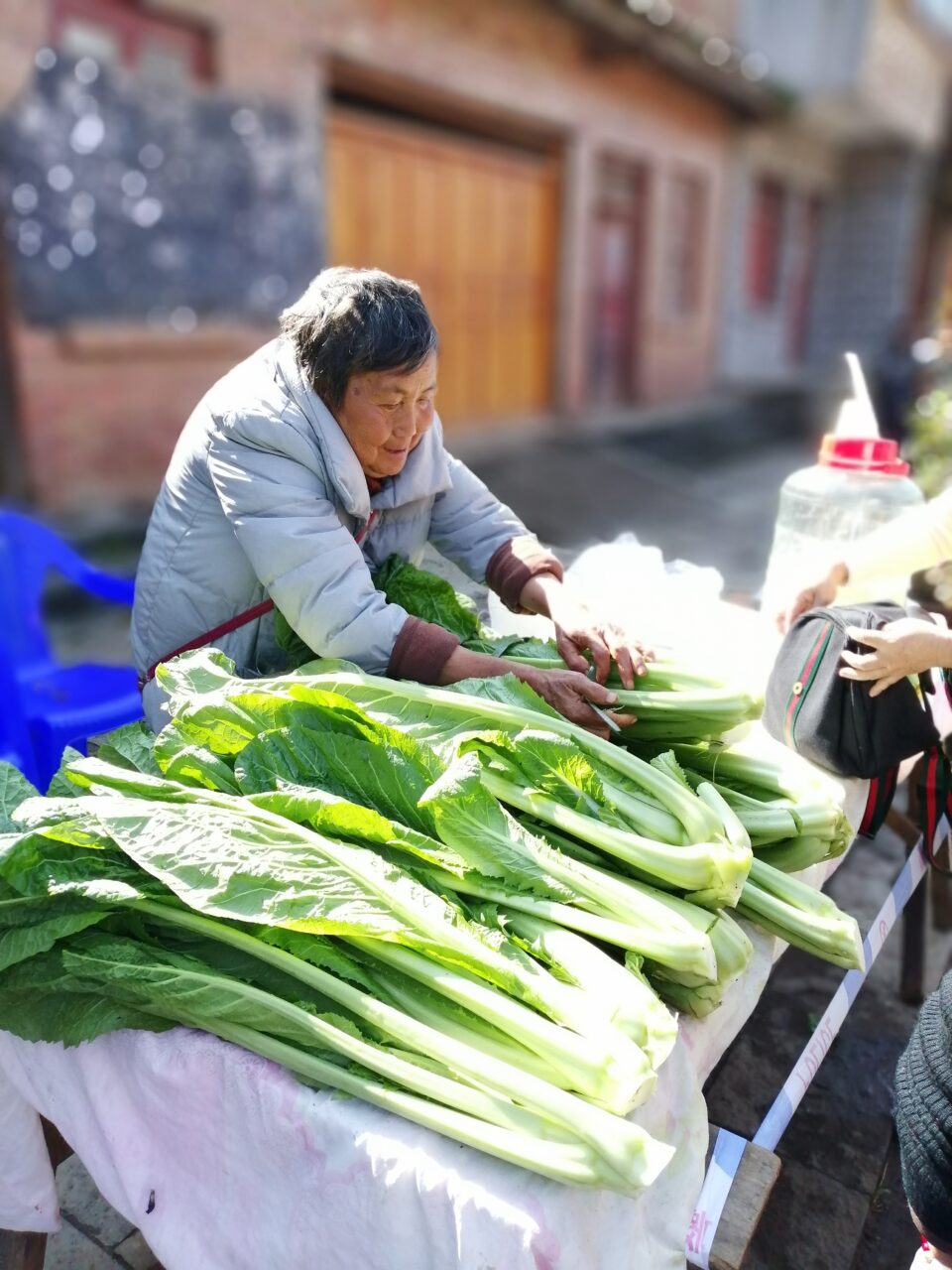
No bootleg versions available. Sorry, Panda Express.
Take for instance, the Rapeseed or Canola Oil Festival in Pingba, a Podunk village that you won’t find on Lonely Planet.
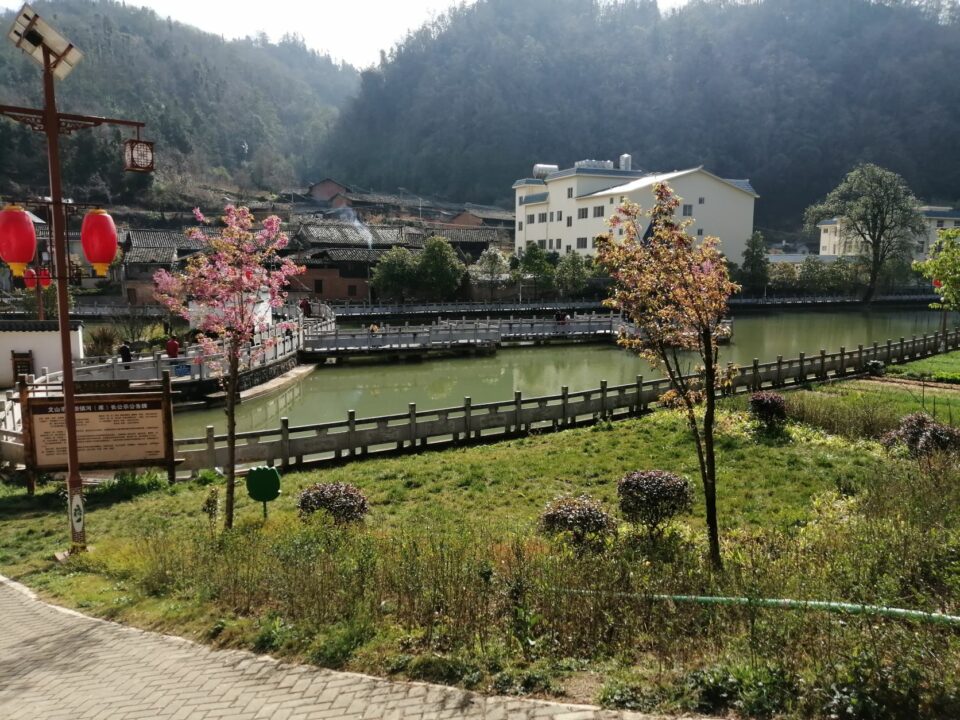
Pingba is on the fault line of what once was and what is, a city with no Starbucks, yoga studios, chicken grown in petri dishes, or refrigerators with AI technology, just a lot of calloused hands and stares. Pingba is on the skirts of Wensheng, Yunnan, another town that ain’t close to nothin’ ‘cept the clouds.
But this time of year, both ancient towns celebrate the blossoming of rapeseed flowers, leaving the fields as yellow as the poppy seeds are red in the Wizard of Oz.
The festival is called, 文山市平坝油菜花节 or the Pingba Ancient Town’s Rapseed Flower Festival.
The celebration has roots in yesteryear, back when everyone was as poor as the Asian counterpart of John Boy Walton. The village creates a major communal feast, one similar to the original American Thanksgiving, minus the whole massacre of indigenous people thing.
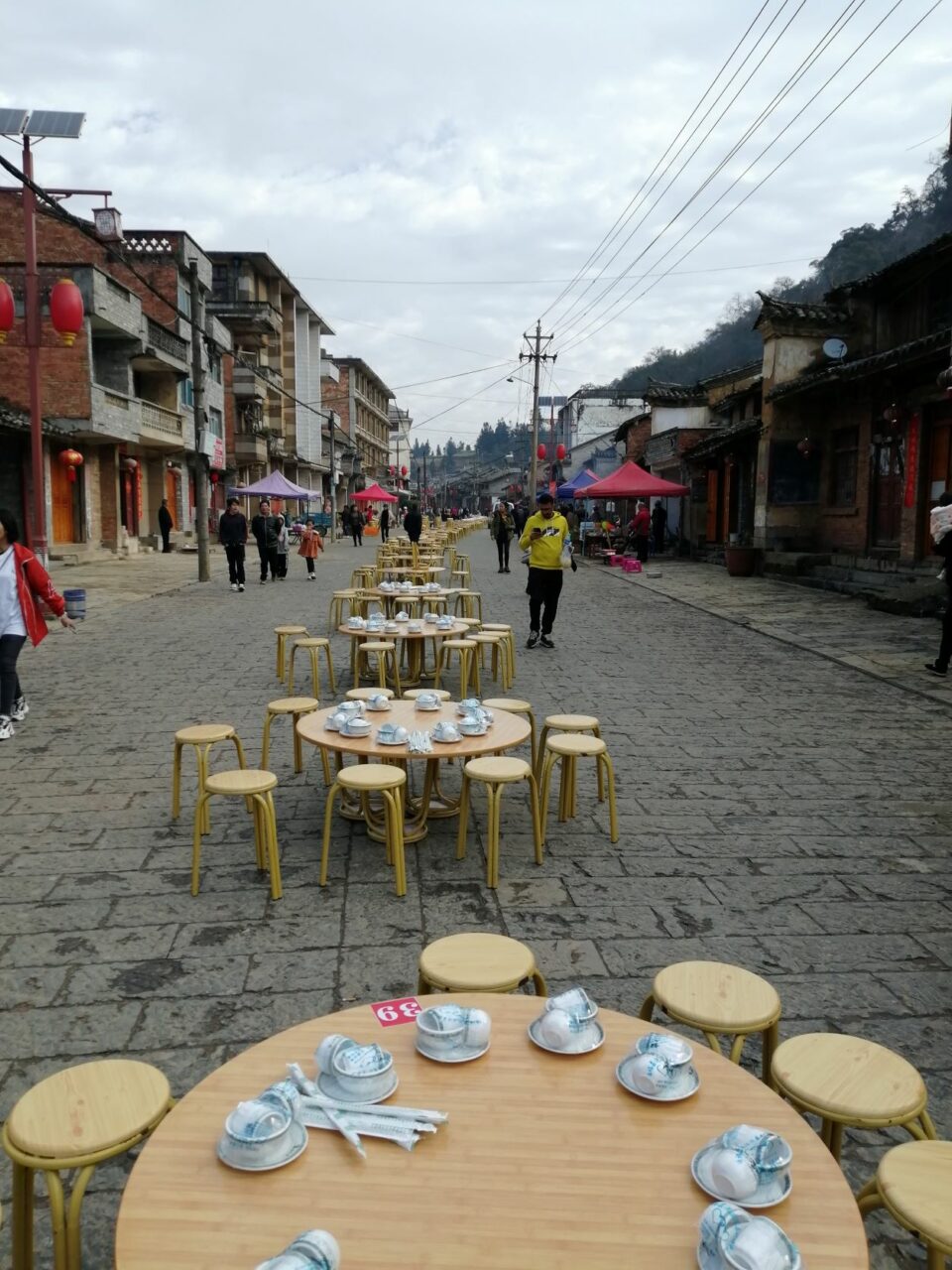
Local folks polish their best woks and bring a sizzling feast to the streets. Some make fresh jiaozi. Others make fresh baskets of rice noodles. Of course, there’s the slacker who stands around and smokes.
In spite of the posted rules of not asking foreigners for photos, we were stopped every few feet, as the tourists were the attraction.

We couldn’t say no to photos or free samples. The hunk of steak this woman offered me was insanely delicious, but also tasted of guilt, as this was her special feast, not mine. She was looking forward to that meal for weeks and what does she do? She gives it away.
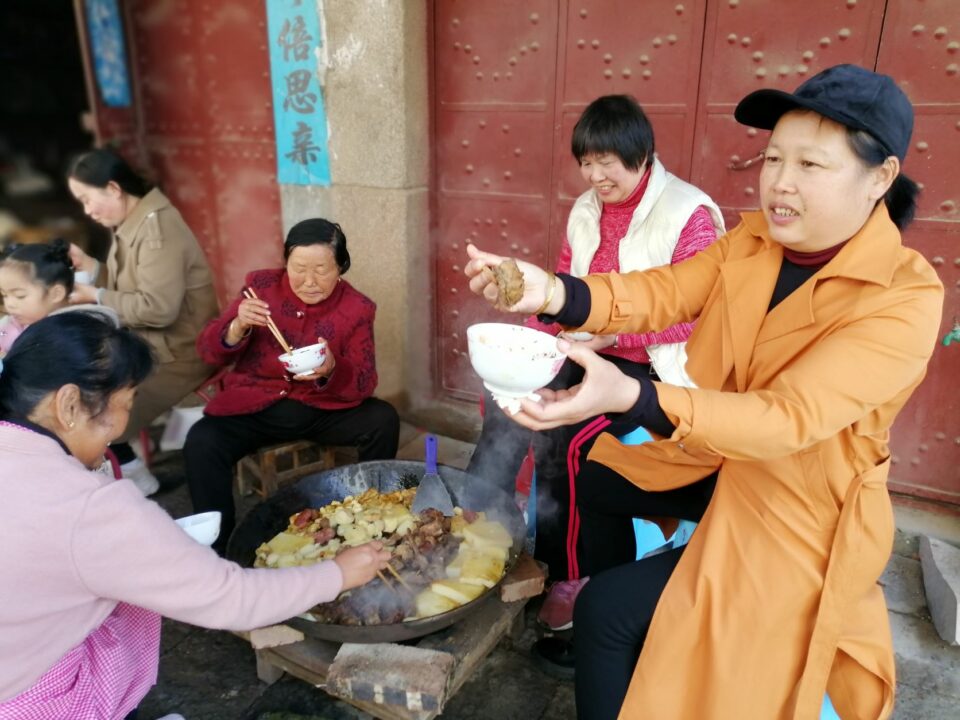
Corn abounds from decorations to buns to the Orville Redenbacher variety.
Along with popcorn (akin to Kellogg’s sugar pops), there was popped rice, another treat reminiscent of the American cereal aisle. The locals enjoyed games that you don’t see on the Price is Right.
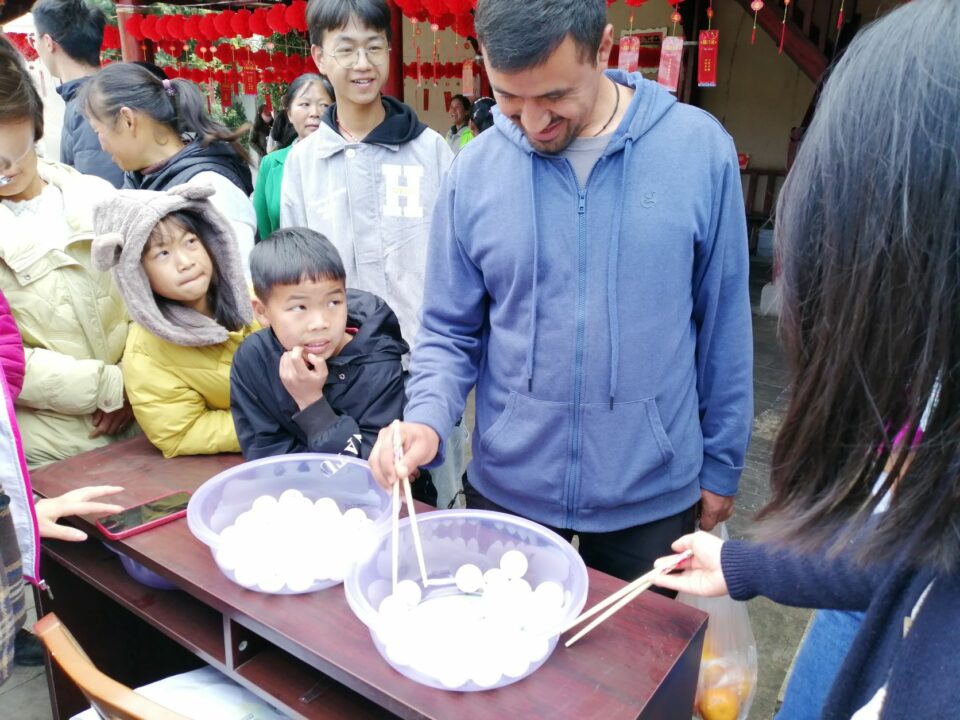
.
We didn’t eat at the never-ending table of Pingba. We were invited for a meal the next town over, one famous persimmon. You even had the privilege of watering a gigantic one.
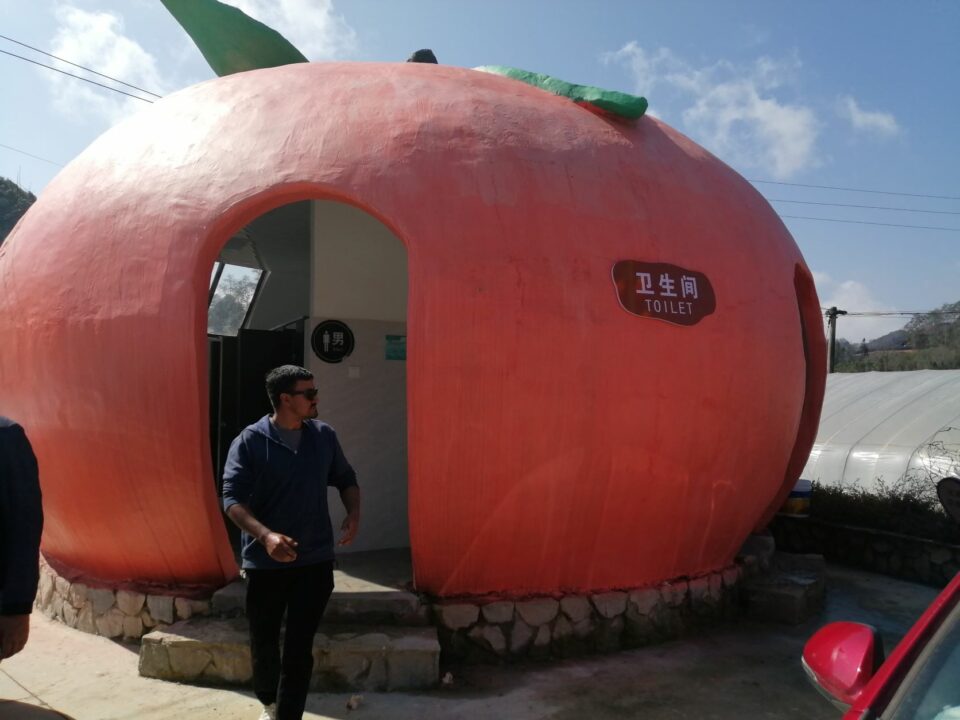
We were served the local hotpot.
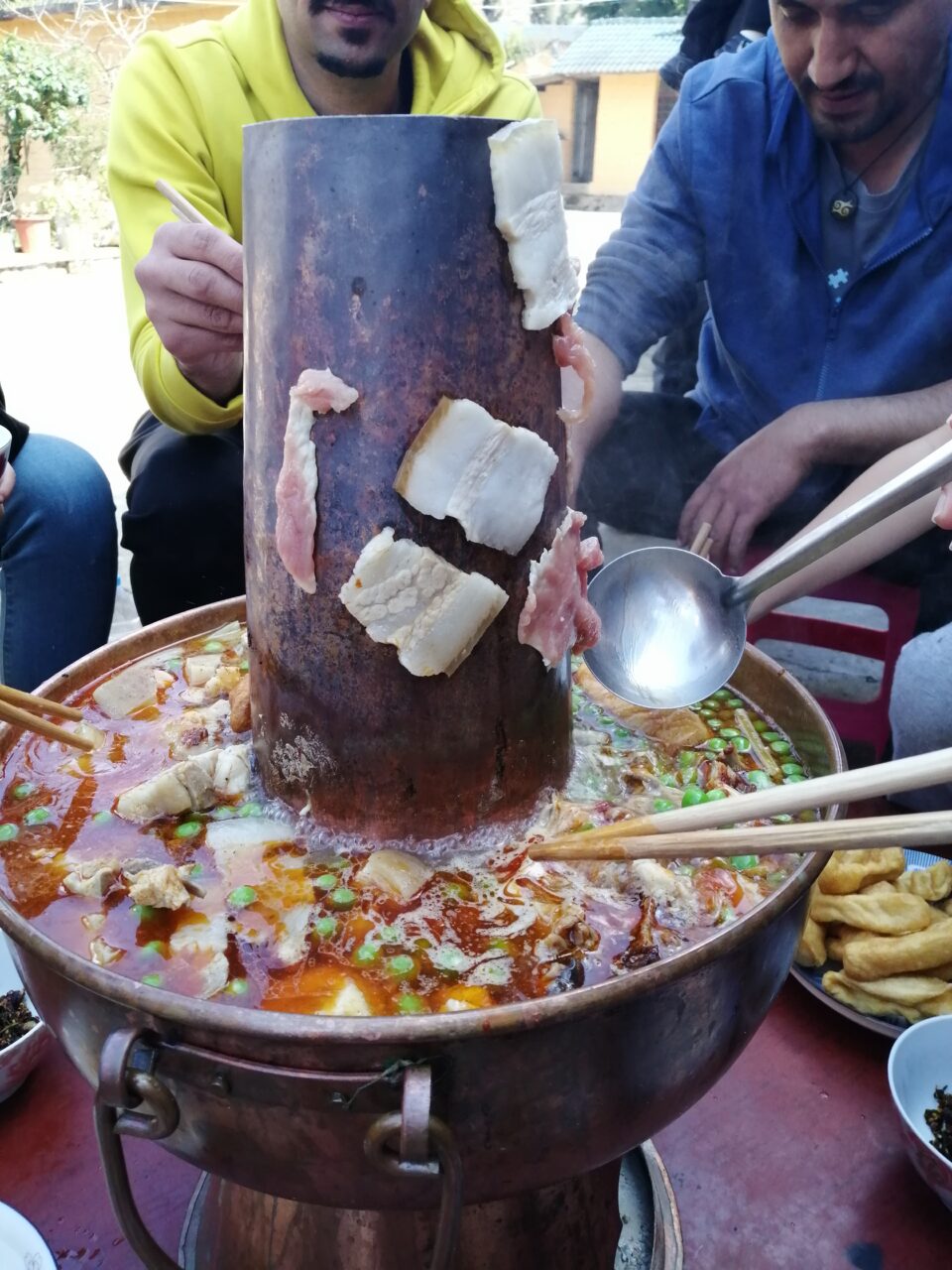
Along with more vegetables straight from the pages of a Dr. Seuss book, including wispy fronds of fennel, a curly rubbery green the shape of ram horn, black chicken feet, and fried bugs (the Chinese version of the French onions you top your Thanksgiving green beans), the hot pot had a searing chimney. You would grill the meat to your liking.
After loosening our belts a few notches, we made the windy trip back to the present, on mountain roads the width of glorified sidewalks.
Goodbye, wherever I was.
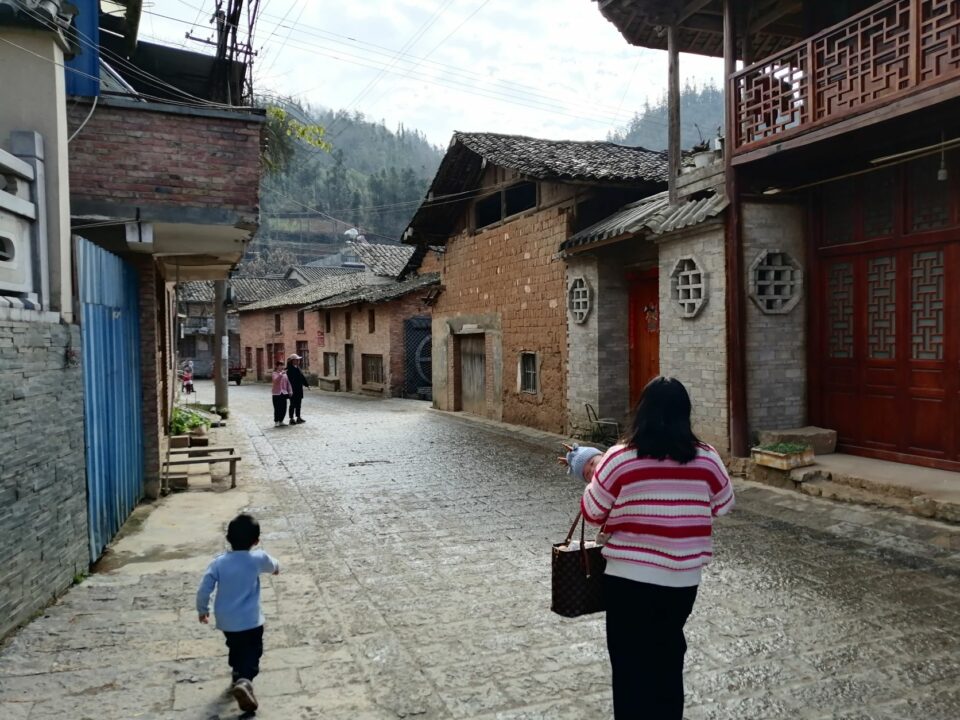
Hello, to the land of kids glued to their phones and international school cuisine of 2023.
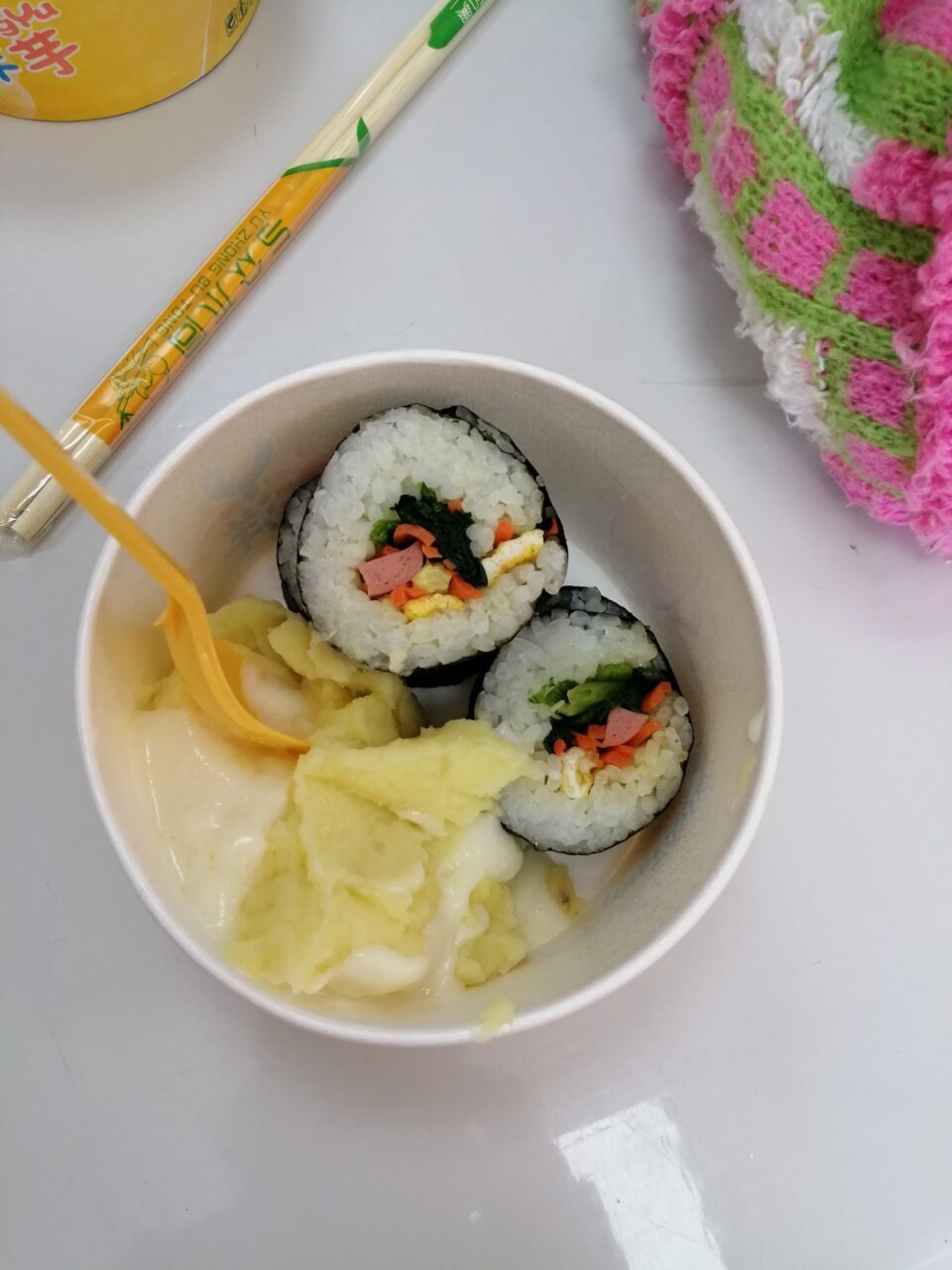
In case you’re wondering, it’s mashed potatoes with a side of Kimbap.
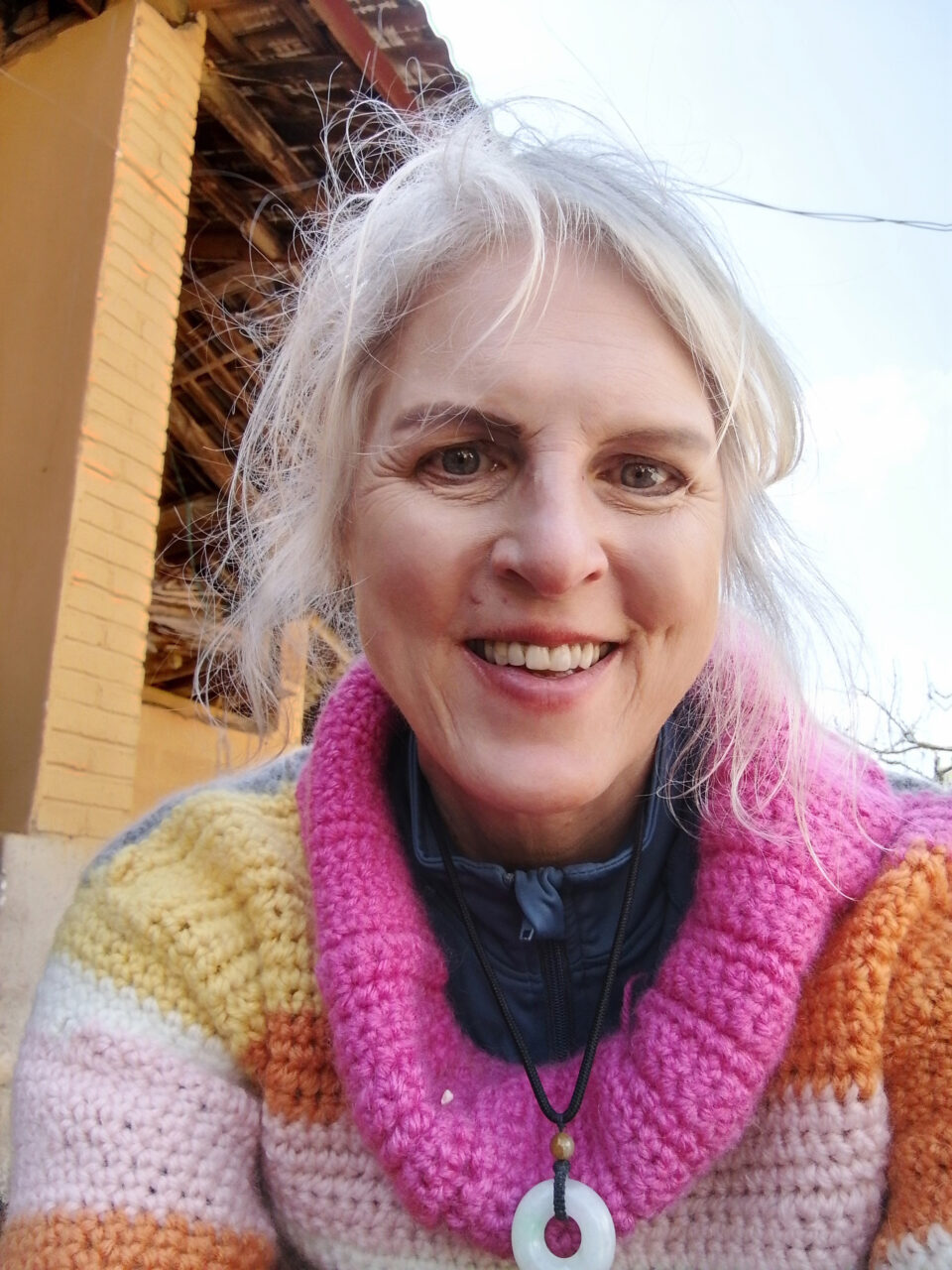
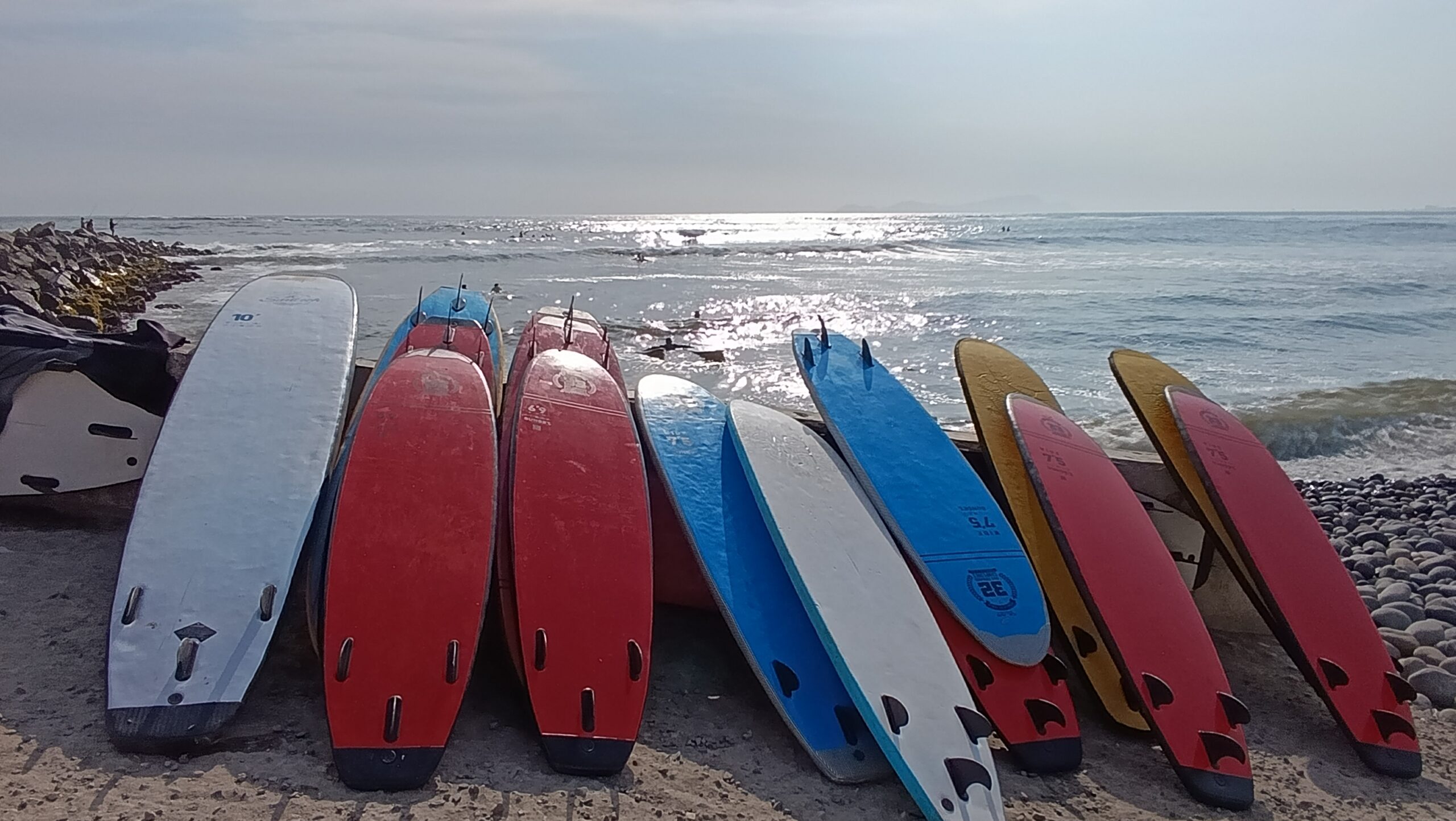
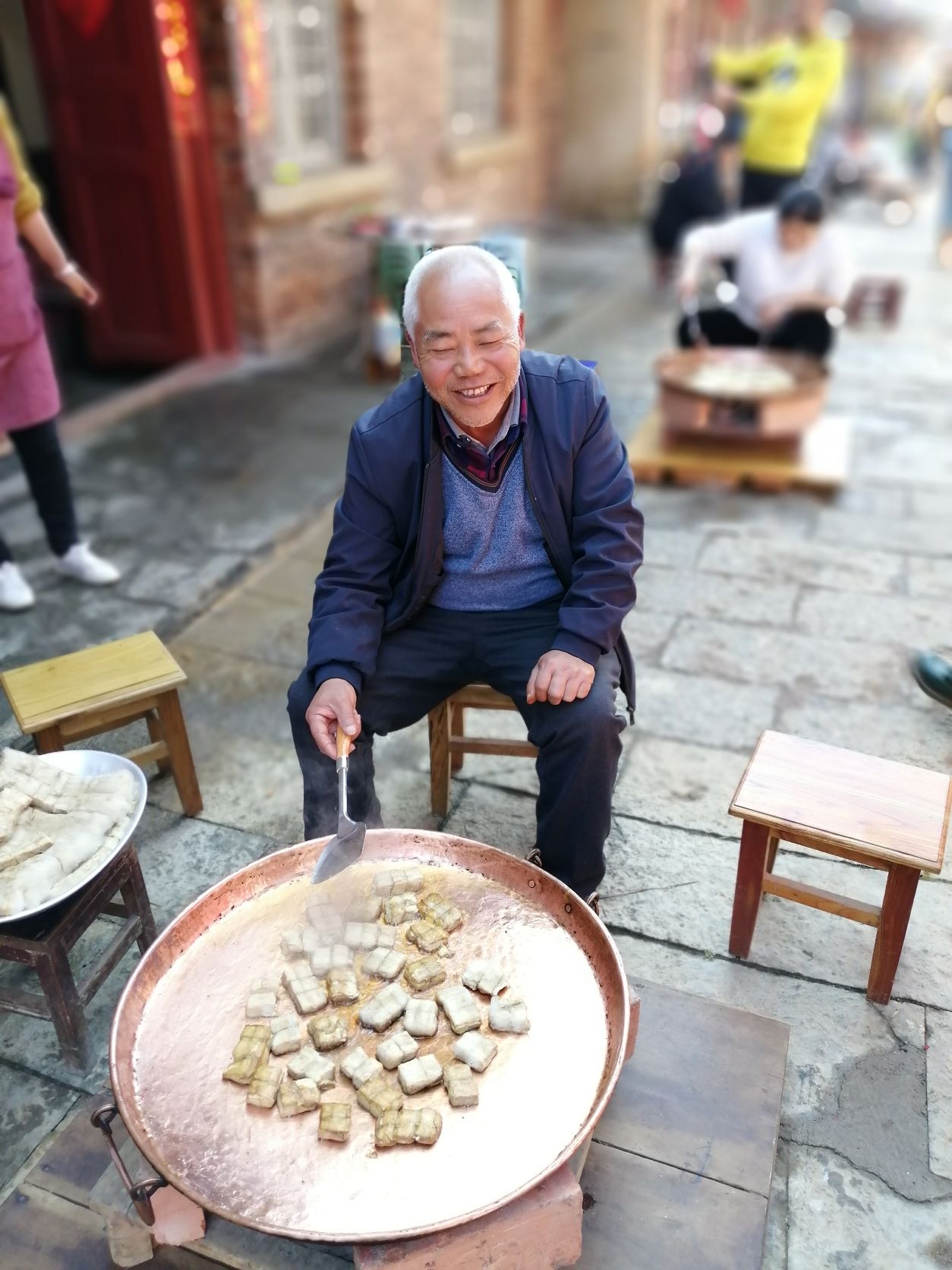
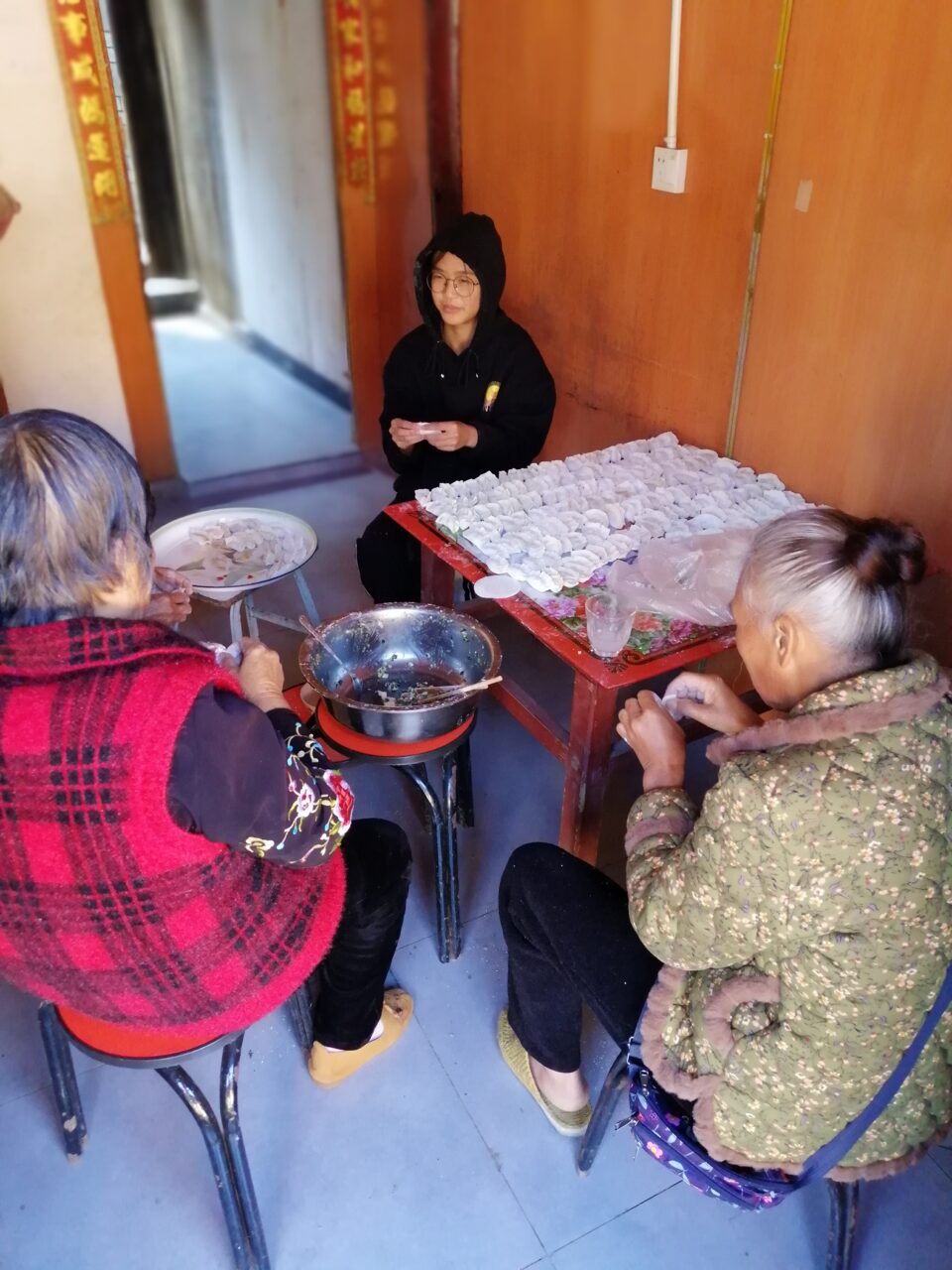
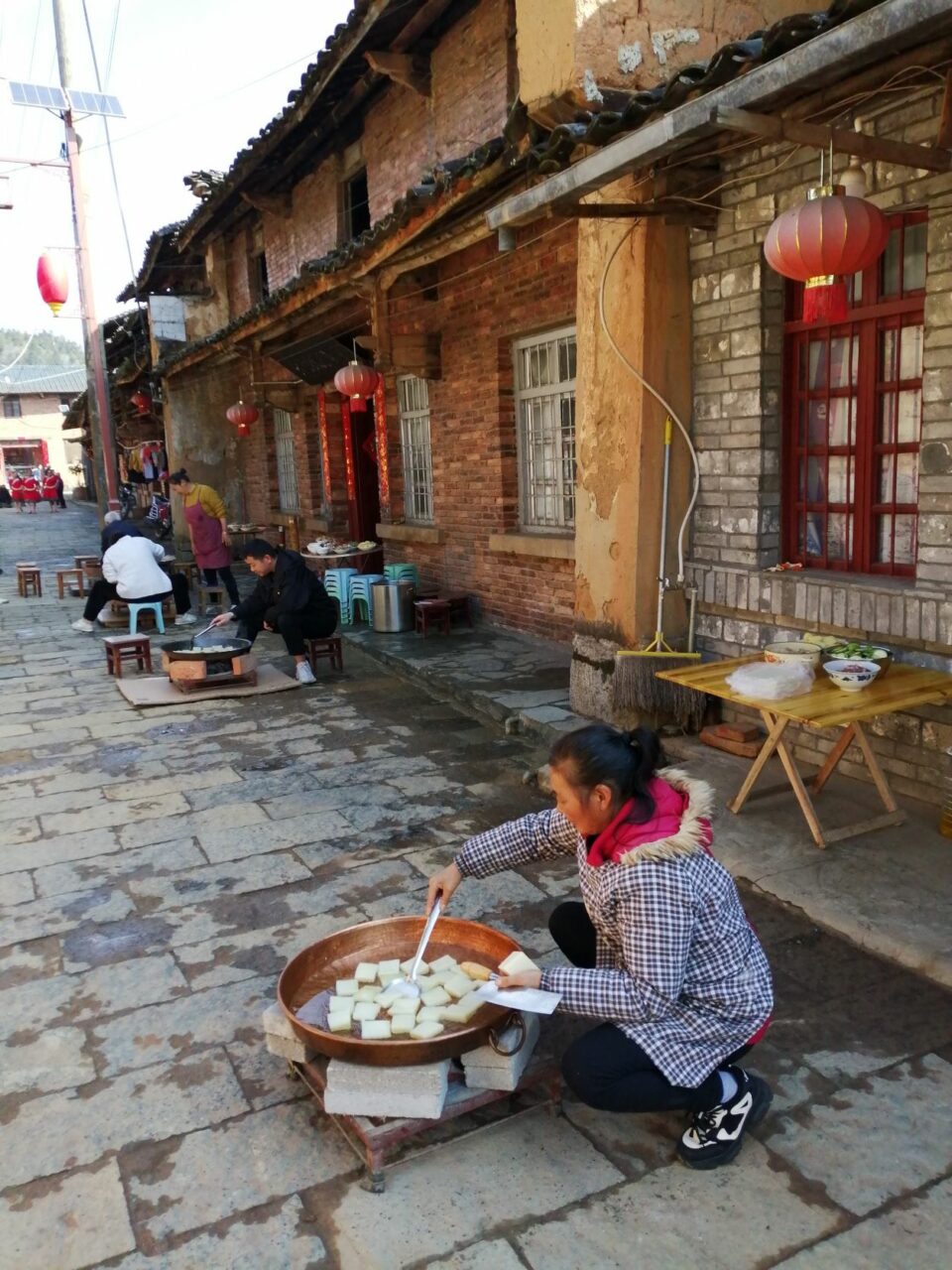
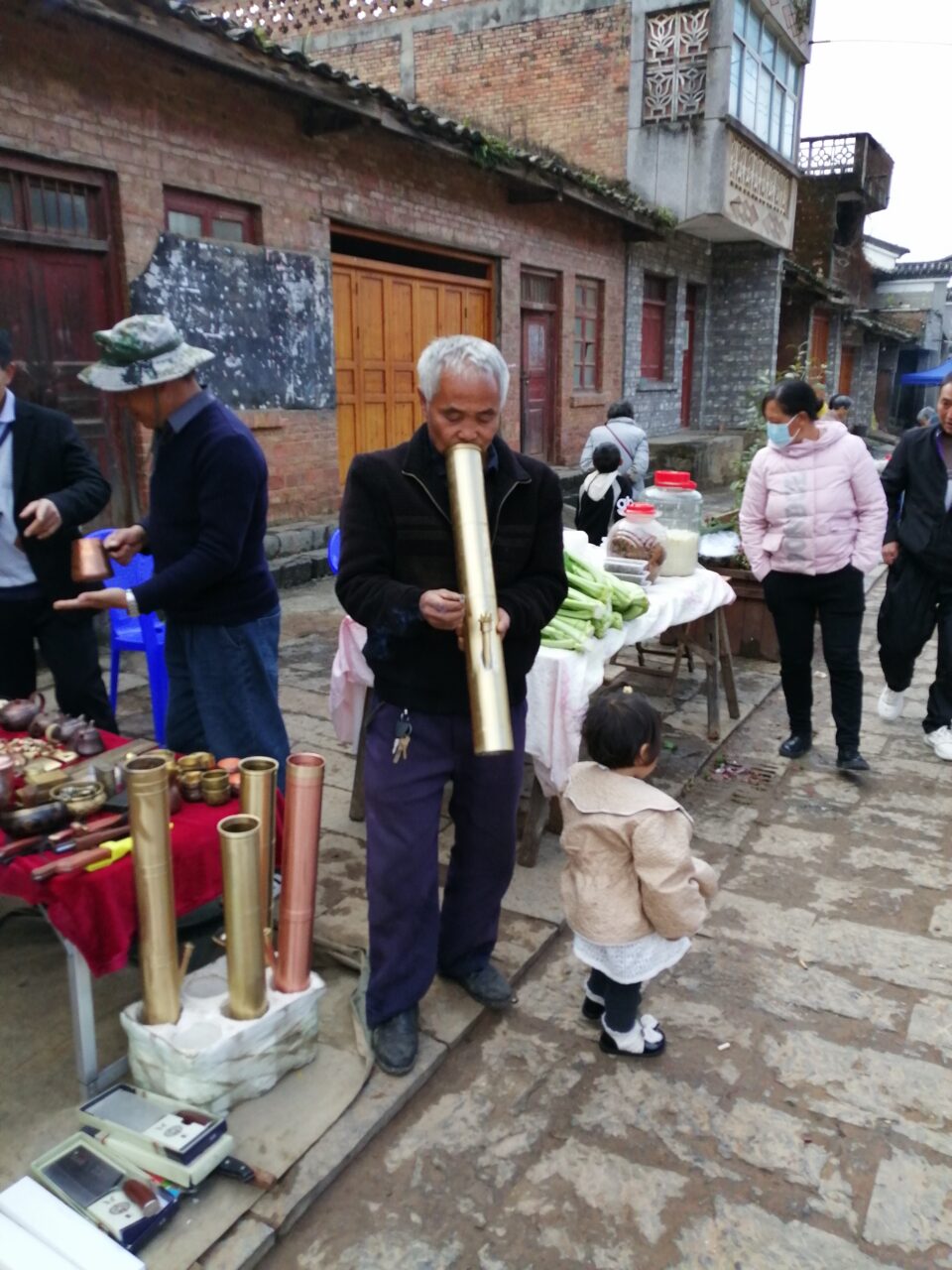
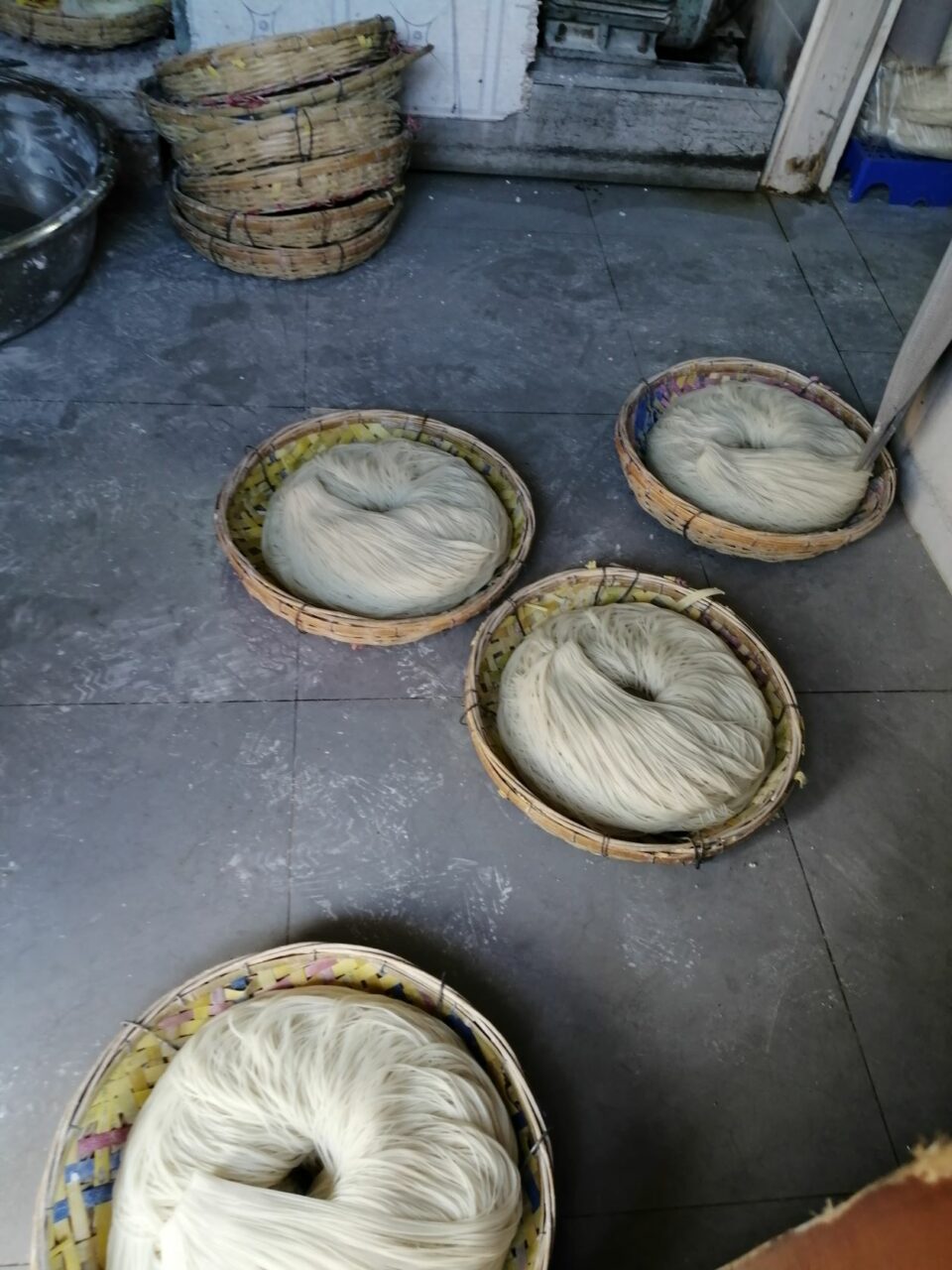
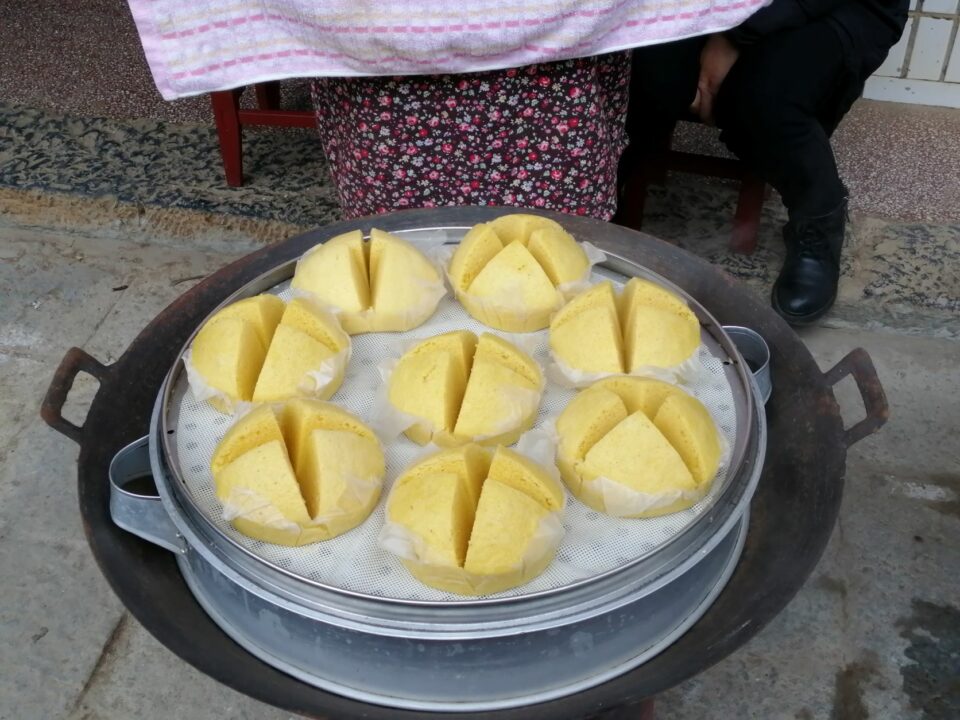
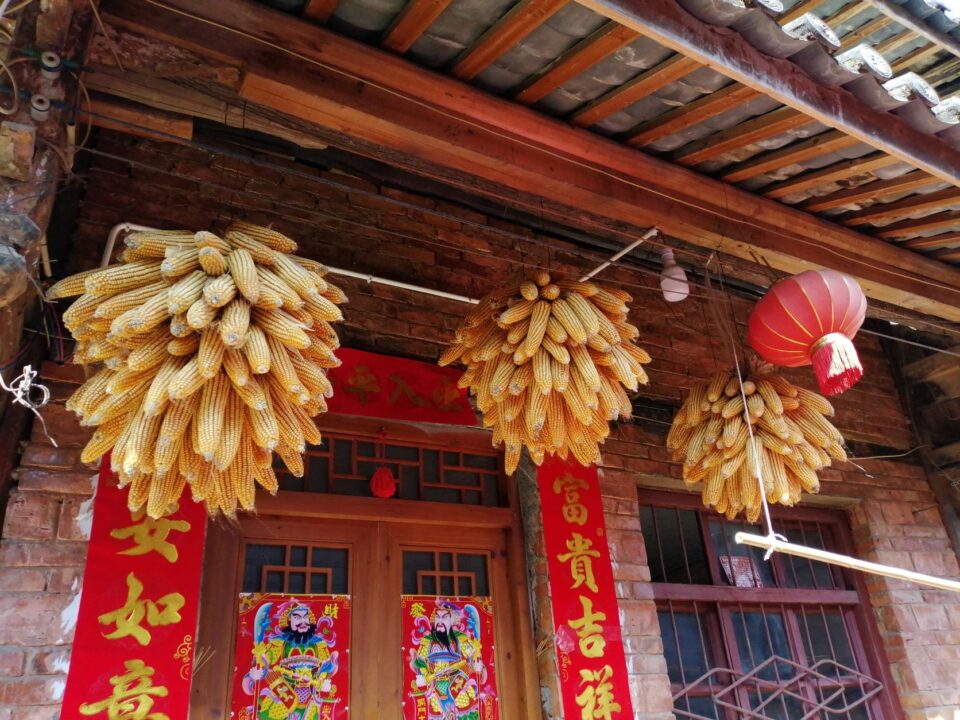
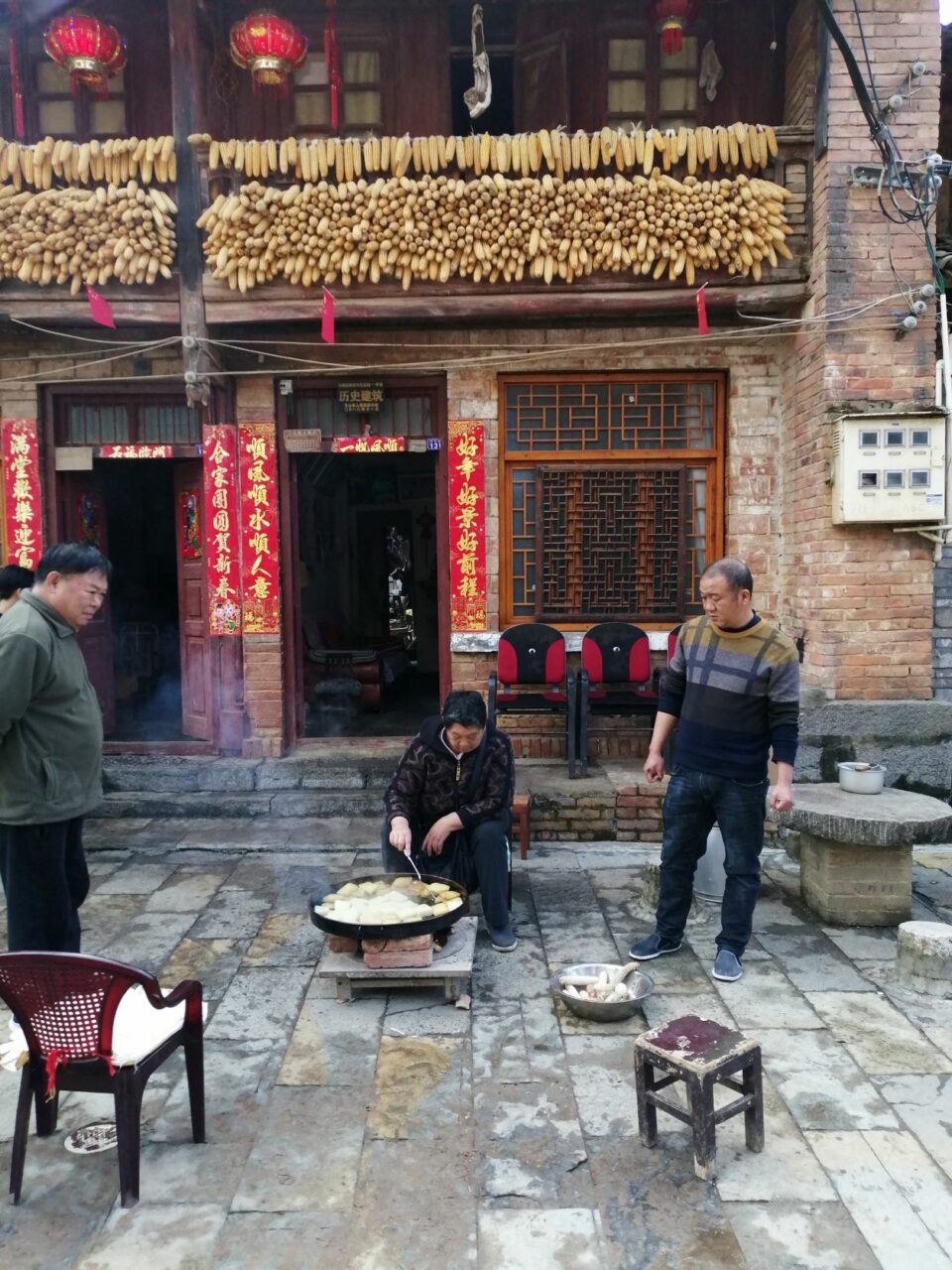
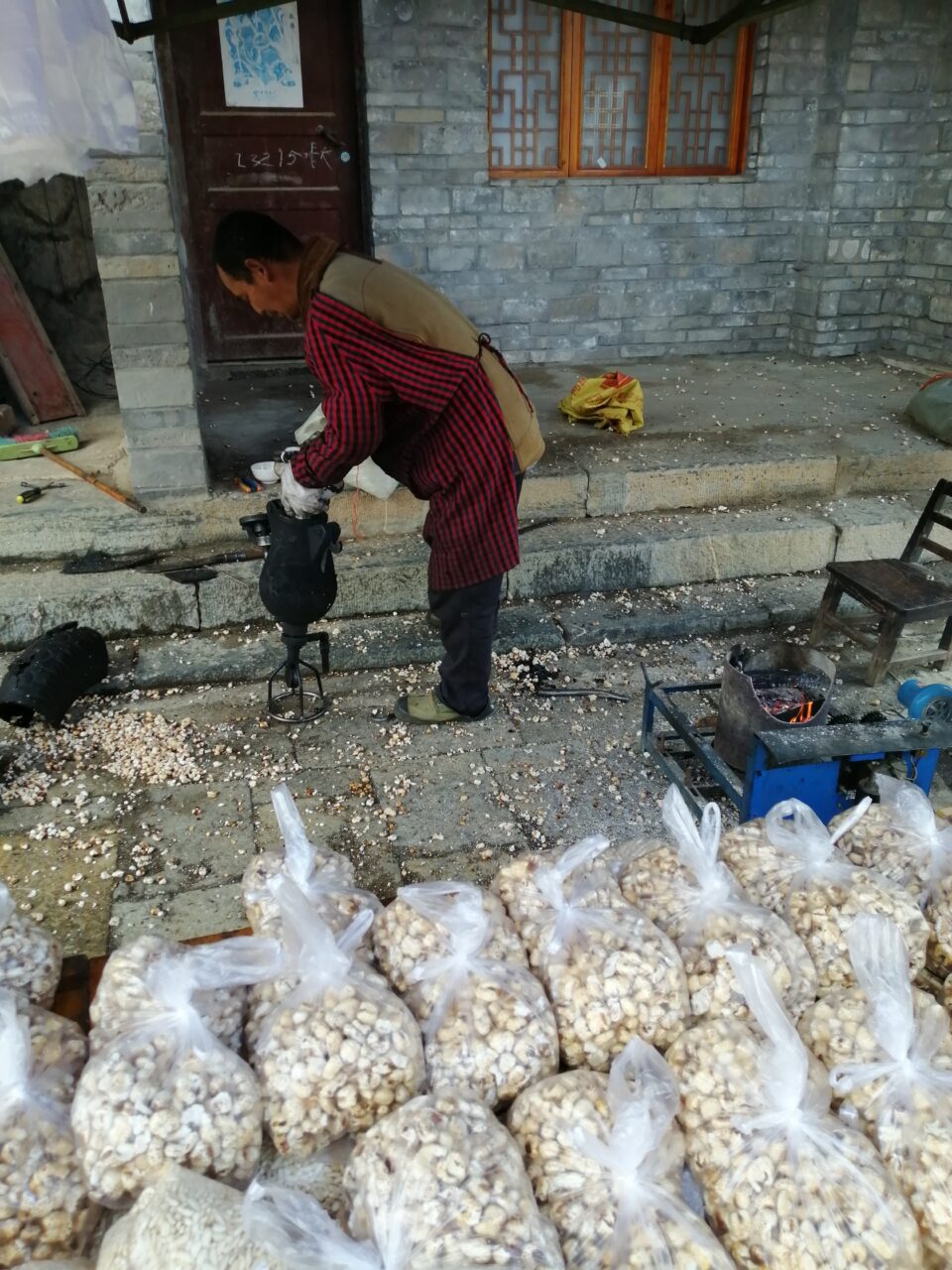
Thank you for sharing your experiences!